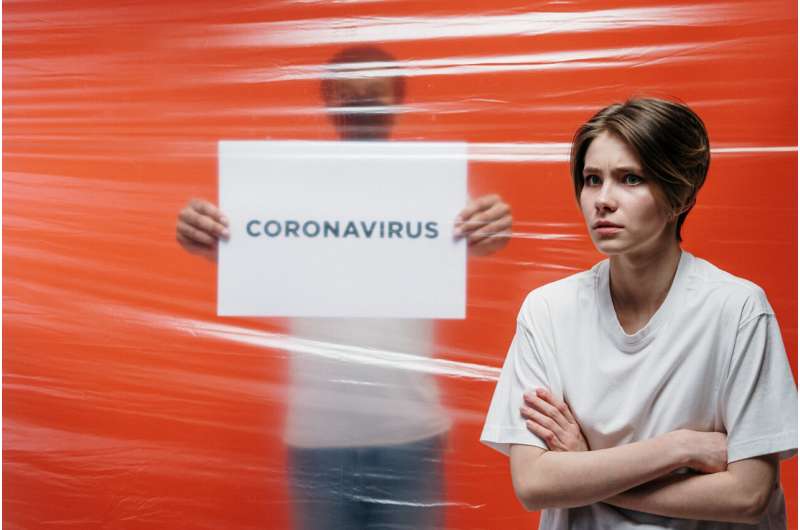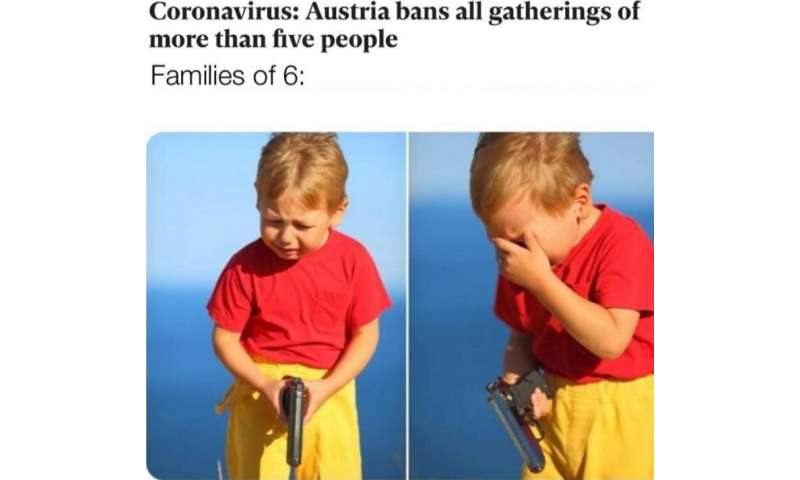
Public health measures to combat COVID, such as lockdowns, quarantines and social distancing, have made many people anxious. In many countries, including the UK studies found that rates of anxiety and depression rose following the onset of the pandemic.
Coping with anxiety can be a challenge even in the calmest of times, so it’s no surprise that the pandemic affected the mental health of so many people. One antidote to newfound anxiety may be found in the many COVID memes that have proliferated on the internet during the pandemic. Positive humor has been found to be an effective coping mechanism for anxiety, and this may also be applicable to pandemic-related anxiety.
Humor helps people reassess negative situations and see them in a more positive light. The internet provides an endless supply of memes, funny videos and images to make us laugh about any topic. Many online groups and forums have emerged dedicated to sharing and discussing COVID memes.
As a psychologist, my research seeks to better understand the nature of mental health difficulties. Like many, I also enjoy laughing at internet memes on social media and sharing them with friends and family. My colleagues and I in the research group MEMELab are interested in the connection between humor and mental health and how memes can play a role in helping people struggling with depression and anxiety.
In our latest research we wanted to know how people experiencing clinically significant levels of anxiety perceive COVID memes differently to their non-anxious counterparts.

This study followed our earlier work, where we found that people experiencing clinically significant levels of depression showed a preference for internet memes about depression, compared with non-depressed controls. The participants with depression found the memes more relatable and funnier compared with those in the non-depressed group.
We wanted to know whether these results would apply to people who were struggling with anxiety during the pandemic, and encountering memes about the pandemic itself.
First, we gathered 45 of the most popular memes related to the pandemic from a page on the online forum Reddit titled “coronavirus memes”. These memes referenced aspects of the pandemic such as social distancing, mask-wearing, lockdown, COVID symptoms and remote working.
We then asked 160 people, 80 of whom had clinically significant anxiety, to rate the memes on aspects like relatability, humor and offensiveness. We also asked about the likelihood they would share the memes with another person.

COVID memes and anxiety
We found that people with severe anxiety rated the memes as funnier, more relatable and more shareable when compared with a non-anxious control group. This suggests that anxious people may use humor to make light of an uncertain and worrying situation, in this case, the pandemic.
The greater likelihood of anxious people relating to and sharing COVID memes suggests that these memes might be a helpful tool to express feelings about the pandemic, which may otherwise be difficult to verbalize.
In another recent study, members of the public completed a questionnaire where they observed three memes that were either related or unrelated to COVID. The researchers found that people who viewed the COVID-captioned memes reported lower levels of COVID-related stress compared with those who looked at memes unrelated to the pandemic. This suggests that viewing memes related to the pandemic may help people cope with the negative psychological effect of the pandemic.
Source: Read Full Article
